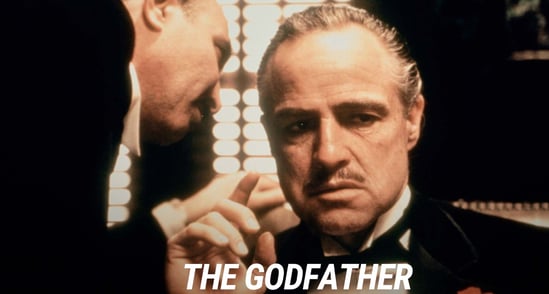The Godfather: A Symphony of Power, Family, and Betrayal
Cinemapedia
Francis Ford Coppola’s The Godfather is more than a film—it is a cultural cornerstone, a timeless tale of ambition, loyalty, and the heavy price of power. Based on Mario Puzo’s novel, this 1972 masterpiece redefined the gangster genre and established itself as one of the greatest films in cinematic history. With its intricate storytelling, unforgettable performances, and haunting score, The Godfather is a saga that continues to resonate across generations.
A Family’s Rise and the Weight of Legacy
At its heart, The Godfather is the story of the Corleone family, a powerful crime dynasty navigating the shifting sands of post-World War II America. The narrative centers on Michael Corleone (Al Pacino), a reluctant heir drawn into the family’s shadowy empire following an assassination attempt on his father, Vito Corleone (Marlon Brando).
The film masterfully balances the personal and the political, chronicling Michael’s transformation from an idealistic outsider to a ruthless leader. The story’s themes of loyalty, betrayal, and the corrupting influence of power are explored with a Shakespearean depth, making the Corleones’ saga as much a tragedy as it is a crime drama.
A Cinematic Masterpiece
Gordon Willis’s cinematography, often referred to as "The Prince of Darkness" for its moody use of shadows, lends The Godfather its iconic aesthetic. The dimly lit interiors and golden hues evoke a sense of intimacy and foreboding, mirroring the film’s themes of secrecy and moral ambiguity.
Each frame is meticulously composed, from the iconic opening scene of Don Vito granting favors on his daughter’s wedding day to the chilling final shot of Michael’s ascension. Coppola’s direction ensures that every moment feels deliberate, enhancing the film’s epic scope and emotional resonance.
A Haunting Elegy
Nino Rota’s score is inseparable from the film’s identity. The mournful strains of the main theme capture the bittersweet nature of the Corleone family’s power—both its allure and its cost. The music underscores key moments with an emotional weight that lingers long after the credits roll.
From the celebratory melodies of the wedding scene to the somber tones accompanying moments of betrayal and loss, the soundtrack serves as a character in its own right, amplifying the film’s operatic intensity.
The Cost of Power
The Godfather is as much a moral parable as it is a crime saga. It explores the fine line between duty and ambition, love and control, family and power. Michael’s journey is a cautionary tale about the sacrifices demanded by leadership and the insidious nature of corruption.
The film questions whether the pursuit of power can ever be justified, especially when it comes at the expense of one’s humanity. Vito’s measured wisdom contrasts with Michael’s ruthless pragmatism, highlighting the generational shift in how power is wielded and the devastating consequences that follow.
A Legacy Etched in Gold
The Godfather is not merely a film; it is an experience, a deep dive into the complexities of family, morality, and ambition. Its richly drawn characters, poetic storytelling, and unforgettable moments—such as Vito cradling his son or Michael’s steely gaze as the door closes—have cemented its place in the pantheon of cinema.
Coppola’s magnum opus invites viewers to reflect on the choices that define us, the ties that bind us, and the shadows that follow us. Decades after its release, The Godfather remains as powerful and relevant as ever—a symphony of power, family, and betrayal that continues to echo through the corridors of film history.


